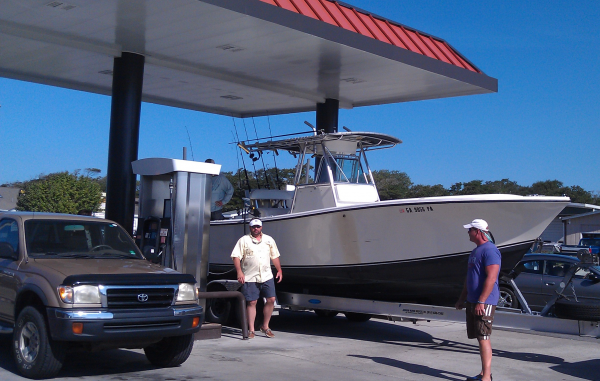
Marine industry sought to better protect boaters from ethanol fuel-related engine damage
The U.S. Court of Appeals of the District of Columbia on Oct. 21 threw out the most-recent case involving ethanol fuel labeling, reasoning that the groups bringing the complaint – including the recreational boating industry – don’t have standing because they “cannot show members have suffered or are suffering with an injury that is traceable to the misfueling regulations.”
The latest suit, brought by the American Petroleum Institute (API) and the Engine Products Group – which includes the National Marine Manufacturers Association – sought to bar E15 (fuel with 15-percent ethanol) or require specific labeling about the fuel, which many in the marine industry believe is not good for marine engines or other small engines.
The suit specifically challenged the Environmental Protection Agency’s plans to prevent misfueling, including the use of what the plaintiffs believe is a highly inadequate pump warning label.
In 2012, this group of industry stakeholders, plus leaders from other industries, including the Grocery Manufacturers Association, challenged the EPA’s authority to grant a partial waiver permitting the sale of E15. That case was also dismissed on procedural grounds citing a “lack of standing.”
In an interview with Trade Only Today, Nicole Vasilaros, NMMA director of federal and legal affairs, said, “We were expecting a positive result from this case because we feel it was factually different from our previous E15 waiver case. Amongst the breadth of industries involved in the case, we did expect to have standing. However, the court seems to have set a bar for standing which is extremely high.”
Vasilaros also said that while the NMMA is not actively involved in additional court cases regarding E15, they are reviewing additional legal options with the ultimate goal of forcing the EPA to at least label pumps better and warn consumers about the consequences of misfueling.
“We need help with this,” said Randy Pulley, owner and head mechanic at Precision Marine in Goldsboro, N.C. “We are already seeing issues with ethanol fuels dissolving plastic parts and breaking down hoses and other fuel system components with E10, and we know E15 will be far worse. The last thing the boating industry needs is to have a rash of mechanical issues because fuel dispensers weren’t labeled properly and casual users filled up with E15.
“E15 isn’t approved to be used in any marine engine and doesn’t work to the point of being toxic,” Pulley said.” E15 isn’t even approved for all automotive engines. We really don’t want it at all, but if it is going to be forced on us, gas pumps need to be labeled large and prominently to show it is not for marine and other small engines.”
Once again, the court’s decision appears to favor Growth Energy, an ethanol industry trade group, which successfully petitioned the EPA in March 2009 to raise the limit on ethanol in gasoline from 10 to 15 percent.
Even though E15 is only approved for some of the automobiles and is known to harm some automotive and most small engines, the court sided with the EPA to allow small decals that the NMMA, API and Engine Products Group find ineffective.
The NMMA and Outdoor Power Equipment Institute support the Look Before You Pump campaign that focuses on alerting consumers to check the labeling on fuel pumps and prevent misfueling.


